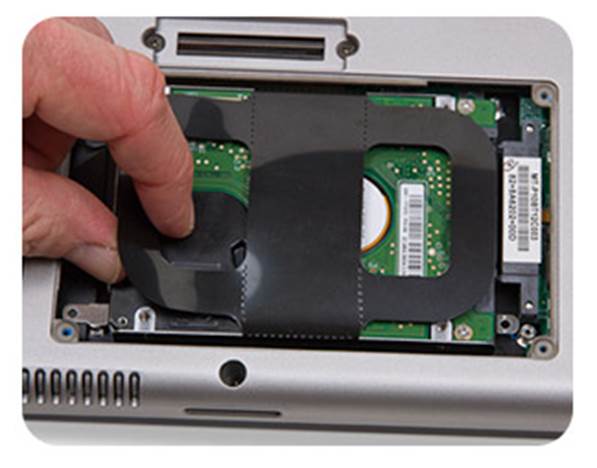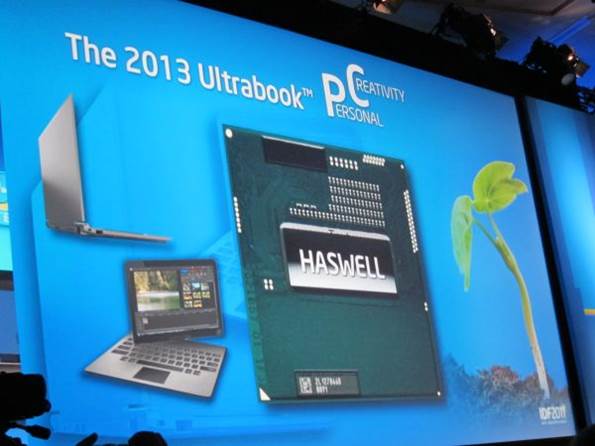Chief Executive, Paul Otellini took over
from the previous boss of Intel, Craig Barrett, in 2005. Otellini has a very
long track record with the company he joined way back in 1974, well before the
PC revolution. Just a few short weeks ago, Otellini announced that after a mere
39 years’ service to Intel, he’d be retiring in May of 2013, sending the
tech-industry into widespread chin scratching about who might replace him.

Paul
Otellini, current CEO of Intel, who recently announced that after 39 years with
the company that he’d like to retire
The first opportunity anyone got to
question him as to the likely direction that Intel might take was at a Sanford
Bernstein investor conference, when he was ostensibly there to talk about
Mobile chip manufacturing. Currently Intel’s mobile silicon is fabricated for
it by Samsung, (which, bizarrely, is also a competitor in the phone/tablet
space), though the hint was that Intel would like to take this manufacturing
in-house, reducing overheads, better utilising their facilities and taking
business away from a major competitor.
Batting away a question about his
successor, Otellini said, “It’s not up to me but I think that’s the most likely
outcome. I’m very comfortable with the internal candidates and the track record
of internal versus external in our industry shows pretty clearly you want to
stay inside if you can.”
If that statement didn’t cause enough
speculation, he then added that “even if you brought in Mr. or Ms. Perfect,
that person is going to take whatever it is, two years to figure out the
culture and the people and how systems work and stuff like that,”
The problem with that last statement is
that it’s not certain that Intel has two years to work things out in the
rapidly altering market, and whomever Intel blesses with the CEO mantle is
going to have to hit the pavement running. That strongly suggests that that it will
be an internal appointee, because an outsider could be the kiss of corporate
death for the company
Final Thoughts
There is an something akin to an emotional
connection most people have to the processor socket on a computer, because it
was one of those things that made the PC what it is today - along with features
like PCI slots, and memory modules. However, for a long time now, laptop makers
have been designing systems where you can only upgrade the memory and the hard
drive, while Apple has even declined to offer those opportunities on systems
like its Mac Book Air.

For
a long time now, laptop makers have been designing systems where you can only
upgrade the memory and the hard drive
We’re pretty sure it’s Apple’s success
that’s driving these changes, as being the most profitable company in the world
has an impact on all the other companies that would like that moniker too. As
such, it’s dawning on Intel that giving people choices has a cost implication,
makes systems marginally less reliable, and can also be a deterrent to them
buying new computers. You can bet your life that, somewhere deep in the bowels
of Intel’s accountancy department there’s a spreadsheet showing what it makes
in processor upgrade sales, with some sort of projection as to how that feeds
through into new system sales. We’d then go on to wager that the same chart
hints at the idea that we’re at a tipping point where less people are upgrading
their systems and sales of totally new systems are in a balance of sorts. That
tipping point makes it conceivable that Intel could consider a form of
commercial cannibalism, where Intel it eats one of its markets in order to
ensure the profitable development of another one.
AMD represents a real wild-card, however.
One which is showing no intention of leaving the socket behind, and could
therefore become the go-to company for enthusiasts should Intel stop supporting
the PC flexibility we’ve come to love. What’s more, with Apple managing to (to
an extent, at least) turn the PC into a commodity, and Microsoft - with the
introduction of Surface - trying to pull the same trick, the disappearance of
the CPU socket could be just the tip of a much larger iceberg. Intel could well
face the prospect of navigating around multiple new challenges that it has never
experienced the like of before. In this light, it’s probably best to have a map
- for it’s sake, it better be the right one, though.

Intel,
as we’ve come to expect, is bullish about the future and how it will make the
best Smartphone chips if we just give it a chance
That metaphor renders these socket
shenanigans as examples of Intel is trying desperately to adapt to a future
where the desktop CPU isn’t the most plentiful thing it makes, and no longer
the hinge on which the entire company’s future depends. It’s looking
increasingly like Paul Otellini has seen some sort of portentious writing on
Intel’s wall, and decided to be the CEO that set the course for the continuing
success of the company he’s served for so long, and not the one who left it adrift
in uncharted waters.
Intel, as we’ve come to expect, is bullish
about the future and how it will make the best Smartphone chips if we just give
it a chance. A stance that totally ignores the fact that ARM has been designing
these devices since 1983, and has acquired a vast amount of knowledge about
making them more efficient in the years since.
I suspect Intel might be falling into the
same trap as Microsoft by assuming that people want Windows on a phone, and
that developers want good old x86 on a mobile device too. They don’t, and one
suspects that the sooner that Intel wakes up to the fact that x86 is a horse
it’s flogged beyond mortality, the quicker it can address its lack of a track
record in this specific chip expertise area.
Early in 2013, Intel will release its final
figures for Q4 2012, which under normal circumstances should include a lift
from the Windows 8 launch. If that bump is missing in action, or worse shows
that ARM based tablets are eating Intel’s lunch, then it won’t only be socketed
processors that will be in the firing line.